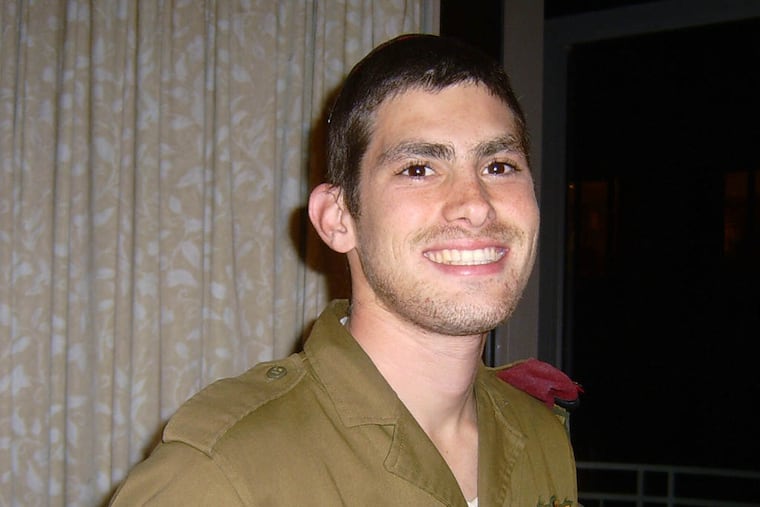Bucks County native inspired 'lone soldiers' in Israel
Michael Levin died fighting for the Israel Defense Forces in 2006. His legacy has helped improve conditions for others like him.

THE WORDS comfort Harriet Levin, expressed in letters sent to her Bucks County home, or in emails, or in person when she kneels beside her son's grave at Mount Herzl military cemetery in Israel.
There's almost always a crowd there, she said, paying respects to Staff Sgt. Michael Levin, his memorial covered in Phillies and Eagles gear.
"Because of Michael," the visitors tell her.
"Everybody just wants to leave a piece of themselves there," Levin, 63, said Wednesday from her home in Holland, Bucks County. "The first year, somebody left Tastykakes. They couldn't have lasted very long, because it's about 100 degrees there."
Michael Levin was not the first American to join the Israel Defense Forces as a "lone soldier" with no family in Israel to support him, but after the 22-year-old was killed in action on Aug. 1, 2006, during the Second Lebanon War, thousands of others from all over the world joined, inspired by him.
More than 5,700 lone soldiers serve in the IDF, according to the Jerusalem-based Lone Soldier Center created in Levin's memory. Almost half are new immigrants.
Two lone soldiers, Max Steinberg, 24, of California, and Nissim Sean Carmeli, 22, of Texas, were killed last week in Gaza.
Levin was just 18, a recent graduate of Council Rock High School, when he left for Israel and the IDF in 2002. At the time, his mother said, there weren't many resources for the young men and women who wanted to become lone soldiers there.
"I think he slept on a park bench his first two nights," she said.
Israel has four Lone Soldier Centers, all dedicated "in Memory of Michael Levin," where the soldiers can find housing, furniture, meals and some common ground as they try to learn more Hebrew and acclimate to daily life there. The centers, according to the website, were Levin's idea.
"His death really brought this to the forefront," Levin's mother said. "It was like he was this visionary."
Becca Richman, who grew up near City Avenue in Philadelphia, recalls being in summer camp on Aug. 1, 2006, when she heard the news of Levin's death. She was only in middle school, but the news changed her life, she said.
"I could actually move to Israel. I could even serve Israel. Hearing about his life - after his death - was the first time I realized that this is something I could actually, literally do," Richman wrote last year on her blog, It's Always Sunny in Beit She'an.
Now Richman is 20 and a lone soldier in Israel. She joined right after graduating from Baruch Hebrew Academy in Bryn Mawr, her father said, and is stationed at a civil-administration building in the West Bank.
"Of course, as a parent, you worry, but I know that this is her passion and this is what she wants," said her father, Brad Richman, 59, an assistant district attorney in Montgomery County. "I'm very proud of her. I worry about her and others there, but there's no guarantee staying in America that she's safe."
Harriet Levin said she saw that same passion in her son and never tried to dissuade him. It was the Holocaust, specifically the 27 months his grandfather Erwin Solarski spent in the Auschwitz death camp, that inspired him.
"I think it made Michael realize how important it was to have a homeland," Levin said.
Sally Mitlas, of Jenkintown, made a documentary film about Levin, "A Hero in Heaven," which was shown on Israeli television. Almost every lone soldier has seen it.
"I think that Michael became a symbol, particularly for American Jewish youth," Mitlas said. "Michael felt the future of the Jewish people was not going to play out in the U.S. He thought it was going to happen in Israel, and he wanted to be a part of it."